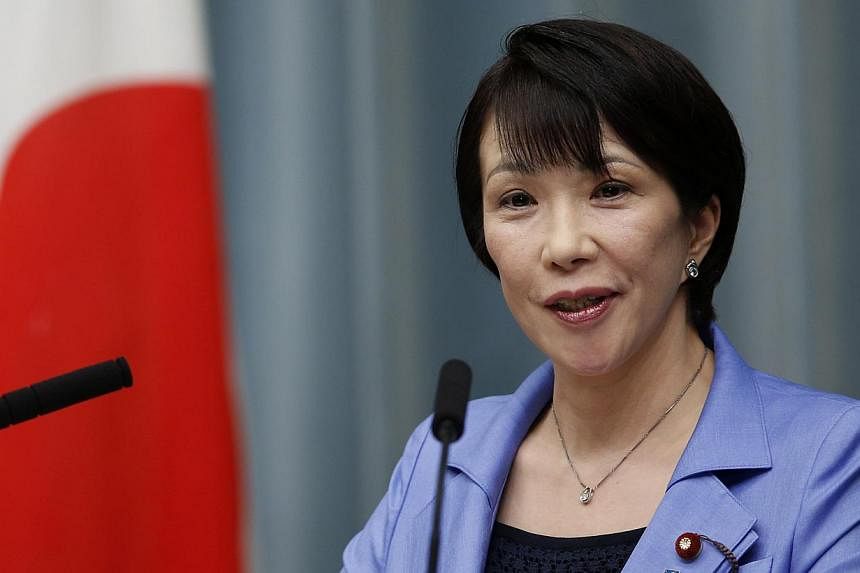TOKYO (Reuters) - Japan's new internal affairs minister said on Friday she intends to visit Tokyo's Yasukuni Shrine although she did not address concern that her new position is likely to exacerbate neighbours' anger over what they see as a symbol of militarism.
"I've been visiting Yasukuni as one Japanese individual to offer my sincere appreciation to the spirits of war dead," Ms Sanae Takaichi told a group of reporters. "I intend to continue offering my sincere appreciation as one Japanese."
Ms Takaichi, who was appointed on Wednesday, belongs to a group of lawmakers advocating visits to the shrine, which politicians typically visit on days such as Aug 15, the anniversary of Japan's World War II defeat.
Visits, by Cabinet ministers especially, anger neighbours like China and South Korea, where memories of Japan's wartime aggression are raw. The Yasukuni Shrine honours Japan's war dead, including 14 leaders convicted as war criminals by an Allied tribunal. Neighbours that had suffered under Japanese occupation during World War II regard politicians' visits to pay respects at the shrine as evidence of Japan's failure to atone for its aggression.
The new Defence Minister Akinori Eto, also a member of the lawmakers' group that advocates visiting the shrine, told a news conference on Wednesday when asked about the shrine that he did not want to cause trouble for the government, indicating a more cautious stance.
Prime Minister Shinzo Abe paid his respects at the shrine last December, sharply chilling ties with China and South Korea, with which relations had already been strained over territorial disputes.

